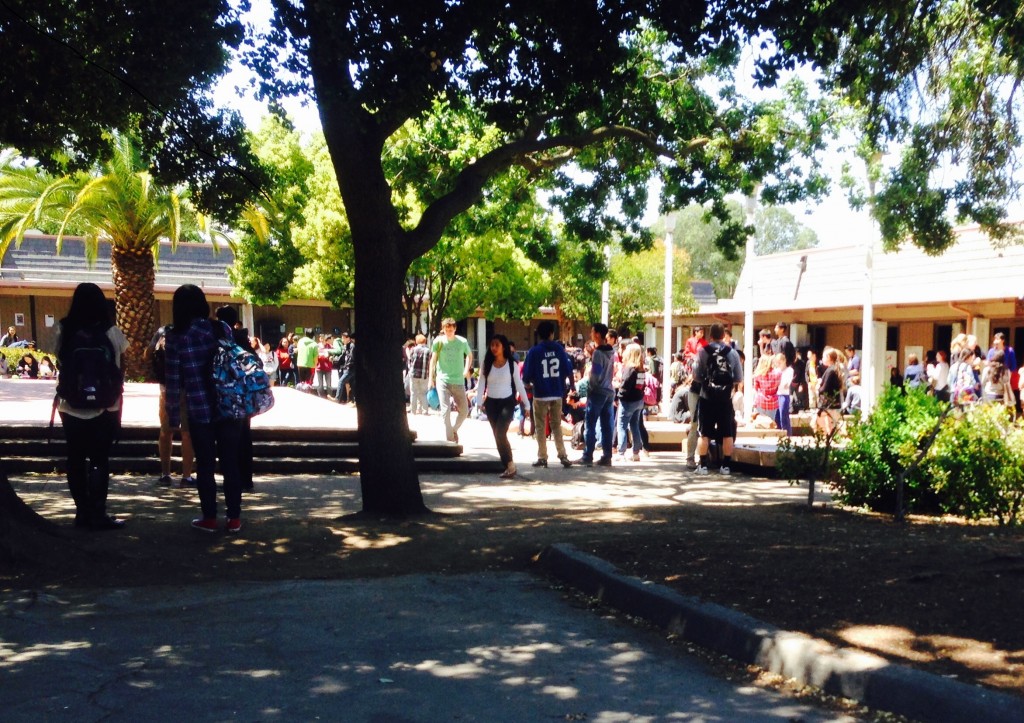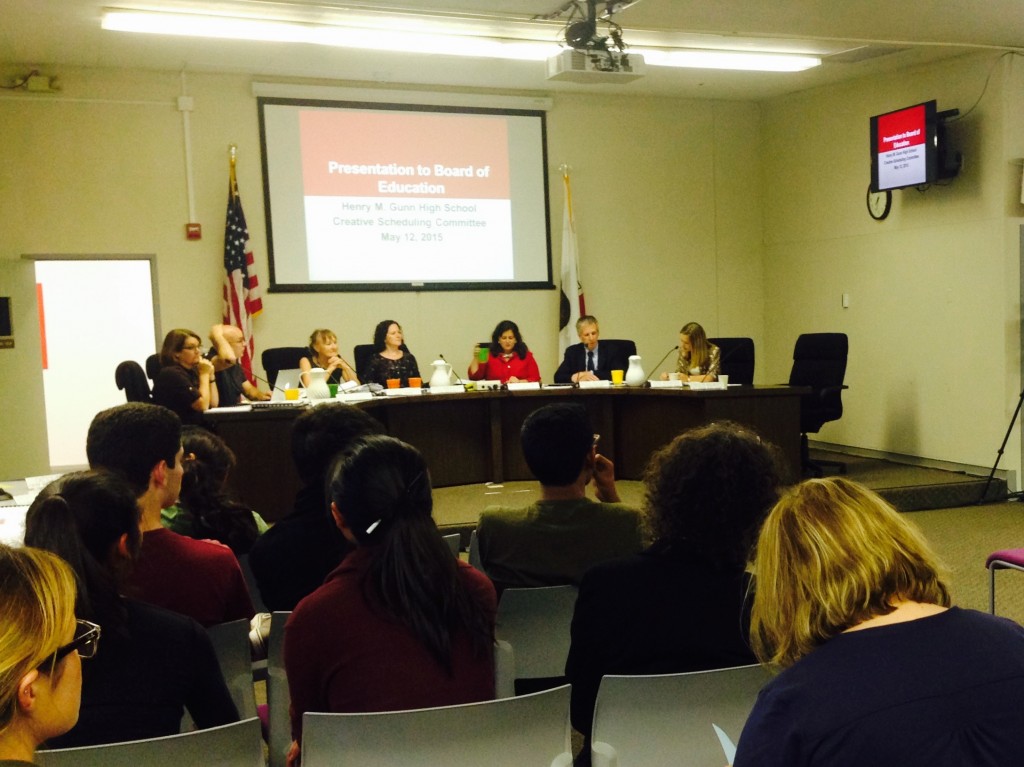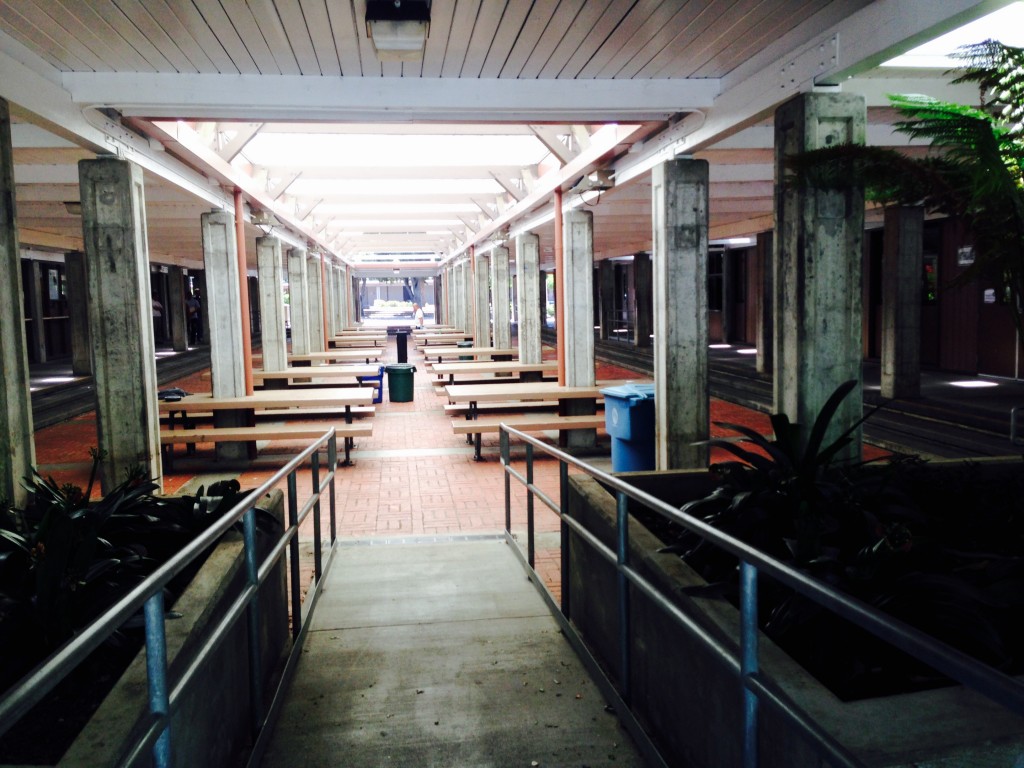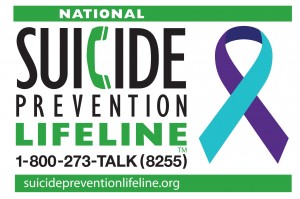Palo Alto’s Board of Education has been rapidly implementing changes to decrease student stress at Henry M. Gunn High School but is facing widespread discontent from students and teachers who feel left out of the decision process.

The Board of Education’s focus on student wellness follows a series of teen suicides in the district. There have been four student suicides in the district this academic year: three Gunn High School students, and most recently the March suicide of a Palo Alto High School sophomore. Nine Gunn students have committed suicide since 2009.
“Suicide contagions are really crisis situations, and thus a crisis mitigation response is essential,” said new district superintendent Glenn “Max” McGee in a phone interview.
Since March, the Board of Education has allocated $250,000 for two more district mental health therapists and has banned academic, graded classes during the early morning zero period starting next year. (Only physical education and non-graded classes will be offered during this optional period, which starts at 7:20 a.m. instead of the standard 8:25 a.m.). And Gunn is considering shifting to a block schedule — an academic schedule with fewer classes per day and longer class periods meant to decrease homework stress and improve learning. On May 12, the board heard a proposal from Gunn High School’s Creative Bell Schedule Committee and will vote on the recommendation at the May 26 meeting.
Of these three reforms, only the funding for therapists will affect Palo Alto High School, which shifted to a block schedule several years ago and already has a policy banning non-P.E. classes during zero period. According to school board member Ken Dauber, the focus on Gunn is because Paly already conforms to the superintendent’s new policy.
Critics have charged that the Board of Education’s zero period decision excluded student input and that external administrative changes will not solve the root issue: student stress and depression.
“You need to change these peoples’ brains; you can’t do that. And a block schedule and a zero period class, it’s not going to do that,” junior Ridhaa Sachidanandan said in an interview.
Rose Weinmann, Gunn’s student representative to the board, termed the zero period decision “misguided paternalism” in her statement at the April 21 meeting.

Dauber proposed the zero period reform at the March 10 board meeting based largely on an American Association of Pediatrics report recommending high school classes start no earlier than 8:30 a.m.
Gunn students were surprised by an email from McGee — sent while students were on spring break — announcing that the decision on zero period had already been made without giving students a formal opportunity to present arguments to the board against eliminating the period.
In response, Gunn students filled half the seats at both recent board meetings to protest the lack of student voice in administrative decisions that affect them.
“This was a decision that was primarily based on health and safety,” Dauber said in a phone interview. “That the decision went the other way doesn’t mean that they weren’t heard.”
Though the May 12 agenda highlighted the new block schedule proposal, the debate over zero period continued to capture the focus of students and board members.
Students questioned the board’s link between zero period and lack of sleep (and the resulting lack of sleep with depression), since taking zero period is optional. Many provided personal anecdotes, arguing that zero periods gave them flexibility for time management, after-school jobs and athletics.
While conceding the point that lack of sleep is a cause of depression, Gunn teacher Peter Herreshoff noted at the meeting that “another cause of depression is lack of agency’’ and taking away students’ ability to craft their own schedule could contribute to their anxiety.
Gunn sophomore Olivia Elson noted that only 15 percent of Gunn students choose to take zero period. “I heard a lot about sacrificing for the greater good, but the greater good is already sleeping in,” she said.

Students are not alone in feeling left out. “As a teacher, I’m feeling as if we’re no longer being included in on the conversation,” physics teacher Lettie Weinmann, who started teaching at Gunn in 1989, said in an interview.
While the dispute continues over the elimination of zero period, Gunn faculty and students worked together with parents on the new block schedule, which will take effect in the fall.
“Our students are extremely bright and articulate, and I am their number one fan,” said Gunn’s Principal Denise Herrmann in a phone interview. “They’re definitely speaking their truth and I admire them for that.”
On the phone, McGee expressed regret over the zero period decision process, though not its outcome. He pledged to work with teachers and students in the future on “de-escalating the performance arms race,” as well as student-initiated ideas like eliminating test-stacking and having options for independent study and online learning.
Within Gunn, upcoming changes to improve students’ mental health include mindfulness classes in freshman P.E. and the construction of a student wellness center to make health services and counseling more accessible.
While their approaches vary, students, Principal Herrmann and Superintendent McGee all expressed the same ultimate goal: improving student wellness.
“The biggest and most important impact is not reducing homework, not block scheduling, but really community awareness as to the mental health issues,” McGee said. “I frankly think that’s more important than any homework policy.”
EDITOR’S NOTE: If you or someone you know is facing a crisis, no matter the problem you are dealing with, call the National Suicide Prevention Lifeline at 1-800-273-TALK (8255), available 24/7. In Santa Clara County, you can also call 1-855-278-4204. In San Mateo County, you can also call 650-579-0350. In a life-threatening emergency, call 911.

